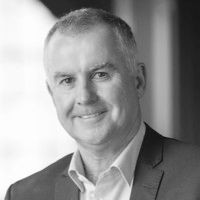So you wanna be a councillor? Here’s how…
Prepare yourself to be bombarded with electoral material over the next couple of months as we edge closer to the local council elections in Wollongong. It’s fair to say being a councillor, dealing with grass roots community issues on a daily...

Prepare yourself to be bombarded with electoral material over the next couple of months as we edge closer to the local council elections in Wollongong.
It’s fair to say being a councillor, dealing with grassroots community issues on a daily basis, can be a thankless job. But it can also be rewarding – not financially, but in helping shape the future of our city.
In many ways, our elected councillors represent us on issues that impact us on a daily basis, starting with the ‘three Rs’ – roads, rates and rubbish. Our council also looks after our parks, gardens and sporting fields, public swimming pools, our drainage and stormwater systems, footpaths and cycleways and our much-loved libraries. It also presents and promotes tourist, sporting and cultural activities, citizenship ceremonies and civic award programs.
The countdown is well and truly on for the next NSW Local Government elections, which will take place on Saturday, 14 September.
New faces
There’ll be some new faces on Wollongong City Council. At this time, two current councillors, Cath Blakey and Mithra Cox, have announced they’ll not be standing, making way for new blood. The retirement of Gordon Bradbery also means we’ll have a new Lord Mayor for the first time 2011.
The clock is ticking if you, or someone you know is thinking of running for the upcoming election, seeking one of the 12 vacancies across three wards. Nominations open on 5 August and close on 14 August.
Tips for those thinking of running
While no formal qualifications are required, training is available for all elected councillors. Having spent more than 40 years observing and working closely with elected councillors and state and federal MPs, here are a few tips for anyone considering throwing their hat in the ring.
- Time: Being a councillor requires a serious time commitment. There are official meetings and briefings, you’ll need time to read council papers and public submissions and you can expect constituents will want to talk to you and meet you (and it won’t necessarily be Monday to Friday 9-5).
- Accessible: Once you’re elected, to some extent you become ‘public property’. People will expect to see you at community events and meetings, and that you'll be accessible to meet with those requiring council support at a mutually convenient time.
- Diverse: It’s important that the council is represented by a diverse group of individuals. It is equally important that elected officials have an interest in a diverse range of issues (i.e. not a single-issue focus).
- Informed: Councillors will be expected to be diligent in getting up to speed on significant issues across the city, and particularly in their ward area, so as to be able to make informed decisions.
- Open-minded: Everyone elected to council brings a different skill set and life experience. It’s important that councillors are willing to listen to a diversity of views and be open to changing their mind should there be a compelling reason to do so.
- Communication: This may be the single most important strength for a councillor. The ability to communicate in written and verbal form is essential. Councillors will be expected to speak at meetings, and to the media, and to provide written responses to the public on a range of issues.
- Responsive:The business of Council never stops, and the public has an expectation that councillors will always represent their best interests. Councillors will be expected to be on the ball and provide their input, comments and feedback to the community and council in a timely manner.
Next steps
If all of the above hasn’t scared you off then you might want to dig a bit deeper.
The best place to get all the information you need about standing for council is on the NSW Office of Local Government’s website.
The NSW Electoral Commission has more information on becoming a candidate.
As a journalist, Jeremy Lasek reported on local, state and federal government for more than 20 years. He was head of communications for the ACT Government for eight years and chief of staff to the ACT Chief Minister for two years.





